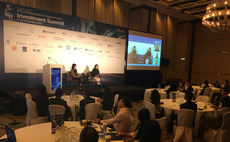
Strategic glad-handing
I recall conversations with a number of Asian GPs on how to invest in family-owned businesses that account for such large number of potential acquisition targets for private equity funds in the region. The formula seemed pretty straightforward. It begins with a period of networking with a prominent member of the company, preferably the Chairman or CEO, and the clear – but not too pushy – communication of a keenness to invest.
The courtship follows, initiated through establishing trust at social events. Eventually, the GP will slowly sow the seeds of change by giving little nuggets of advice on how to run the business. Maybe a couple of years down the line the GP becomes as frontrunner to take over the firm from the patriarch. Obviously there is the chance that nothing happens and all the GP has gained is another friend.
Most senior PE executives would/should have a few of the above relationships in tow as private equity in Asia becomes increasingly competitive. Of course, who is not to say that the business owners are not expanding their network of GPs. I would suspect it is a similar process with LPs, albeit much more structured and formal.
The challenge for GPs is that targeting the most lucrative transactions involves extending business networks even further, incorporating mainland Chinese executives, especially those that manage larger state-owned enterprises.
These companies are still very aggressive acquirers and keen to expand into new markets. They have emerged as one of the largest buyers of PE-owned assets globally with almost $40 billion worth of notable deals recorded since 2005. Recent examples include Dalian Wanda's $2.6 billion acquisition of AMC Cinemas announced and Bright Food Group's purchases of Weetabix and Manassen Foods.
The other type of relationship that GPs need to cultivate is with their peers. According to AVCJ Research, private equity secondary deals are increasingly prominent in Asia (although the figure for 2007 was puffed by three deals, Tokyo Star, Arysta and UTAC).
Frowned upon by investors in the past, secondary transactions create win-win situations for the private equity firms as sellers and buyers. Knowing the principals of the sellside firm on a personal basis can help grease the wheels and may mean substantial savings in time and advisory fees.
So, GPs of the world, now is the time to unveil that million-dollar-smile normally reserved for your biggest LPs, brush up on your Putonghua and make your way to Hong Kong and Beijing in search of new (strategic) friends. Alternatively, just come to an AVCJ conference.
Latest News
Asian GPs slow implementation of ESG policies - survey
Asia-based private equity firms are assigning more dedicated resources to environment, social, and governance (ESG) programmes, but policy changes have slowed in the past 12 months, in part due to concerns raised internally and by LPs, according to a...
Singapore fintech start-up LXA gets $10m seed round
New Enterprise Associates (NEA) has led a USD 10m seed round for Singapore’s LXA, a financial technology start-up launched by a former Asia senior executive at The Blackstone Group.
India's InCred announces $60m round, claims unicorn status
Indian non-bank lender InCred Financial Services said it has received INR 5bn (USD 60m) at a valuation of at least USD 1bn from unnamed investors including “a global private equity fund.”
Insight leads $50m round for Australia's Roller
Insight Partners has led a USD 50m round for Australia’s Roller, a venue management software provider specializing in family fun parks.





